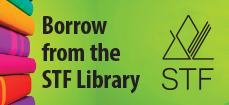Assess how relationships (e.g., with self, peers, family, teachers, teammates, opponents, coaches, employers) influence all dimensions of wellness.
Confrontation Model: Select a specific example that illustrates the behaviour/situation you want to change, describe your emotions re: behaviour/issue, clarify why this is important- what is at stake to gain/lose, identify your contribution to this problem, indicate your wish to resolve the issue, invite other(s) to respond. (Scott, 2002)| (a) |
Recognize that relationships are dynamic (i.e., variable) and change over time. |
| (b) |
Ask and respond to important questions about relationships, such as: What matters most in relationships? Why is it important to step in or speak out in someone's defense? When is it important to keep silent? How do we maintain optimal wellness through our relationships with others? What is most effective for managing/ nurturing/embracing change in relationships? |
| (c) |
Analyze how relationships are developed and enhanced through an awareness of self, others, and by one's overall well-being. |
| (d) |
Discuss and examine common challenges in relationships. |
| (e) |
Determine own challenges in personal relationships. |
| (f) |
Investigate ways in which relationships are initiated, maintained, and terminated and the related consequences to overall well- being. |
| (g) |
Analyze negative interactions that may result during competitive participation in movement activities (e.g., a parent/adult yelling at an official, a coach who does not give equal playing time). |
| (h) |
Reflect on personal approaches to conflict and how these approaches enhance and/or impede wellness. |
| (i) |
Discuss skills and behaviours that are effective in nurturing relationships and those that escalate conflict. |
| (j) |
Evaluate and practise different ways to resolve a conflict including the "confrontation model". |
| (k) |
Examine the benefits (e.g., staying connected to a friend who has moved, enhanced opportunity to engage in social justice or political issues) and the harm (e.g., online bullying, inadequate sleep, scams) that may result from the use of social networking, online shopping, internet gambling, etc. |
| (l) |
Examine legal rights and responsibilities concerning relationships and how these rights and responsibilities are established to support overall well-being. |
| (m) |
Demonstrate and evaluate personal commitment to responsible social behaviour (Hellison, 2011) while participating in and analyzing movement activities. |
| (n) |
Reflect on and respond to relationship questions (e.g., Why would someone establish a positive relationship with an opponent in the context of participation in a competitive movement activity? How do I safely end or get out of relationships that are unsafe? How do relationships impact/influence one's wellness?). |
| (o) |
Evaluate, revise, and continue to implement a Personal Plan for Wellness to demonstrate decision making that enhances relationships and overall well-being. |


Straightlaced: Behind the Scenes with the Producers and supporting teacher materials are available.
This Fifth Estate episode relates Fleury's remarkable story, the staggering fall from grace that cost him millions of dollars, his family and almost, his life. Fleury talks about how he struggled back from the brink of despair to become clean and sober and ready to help others. He candidly discusses the dark issues that haunted him during the glory years, including the sexual abuse he experienced as a teenager at the hand of the now notorious junior hockey coach, Graham James. Behind Fleury's public bravado was a man struggling with addictions to alcohol, drugs and sex. His candid and unsentimental recounting of those years and, finally, his vanquishing of his demons, will be an inspiration to many - a cautionary tale for others.
This video opens a dialogue for youth to be aware of these issues and to not feel as alone.




This program also describes the history of two-spirited people in the First Nations culture.







A teacher's guide is available.




The program addresses possible consequences of sexting which could range from embarrassment to legal ramifications including child pornography convictions. The program reminds youth that information sent by computer or cell phone is not private and that protecting oneself by using passwords and user IDs is essential for teens.

A teacher's guide is available.






A teacher's guide is available.






